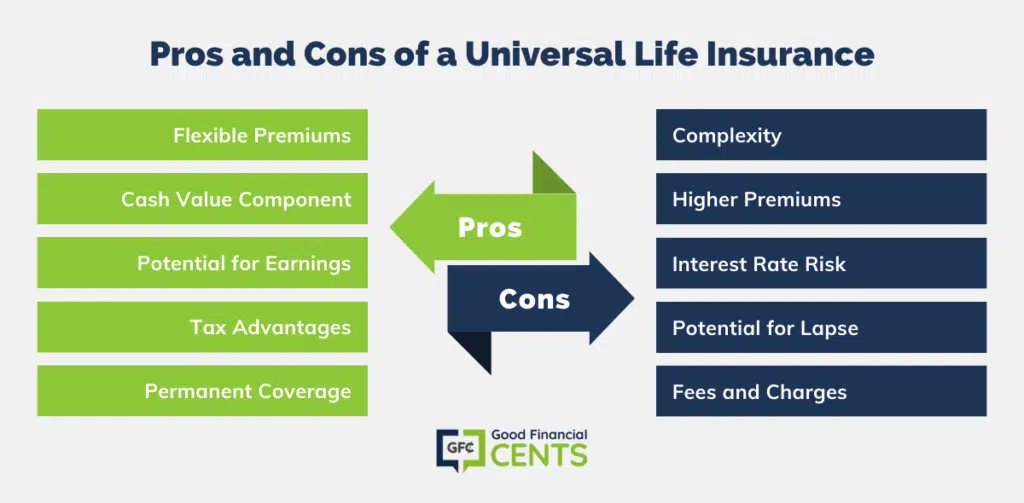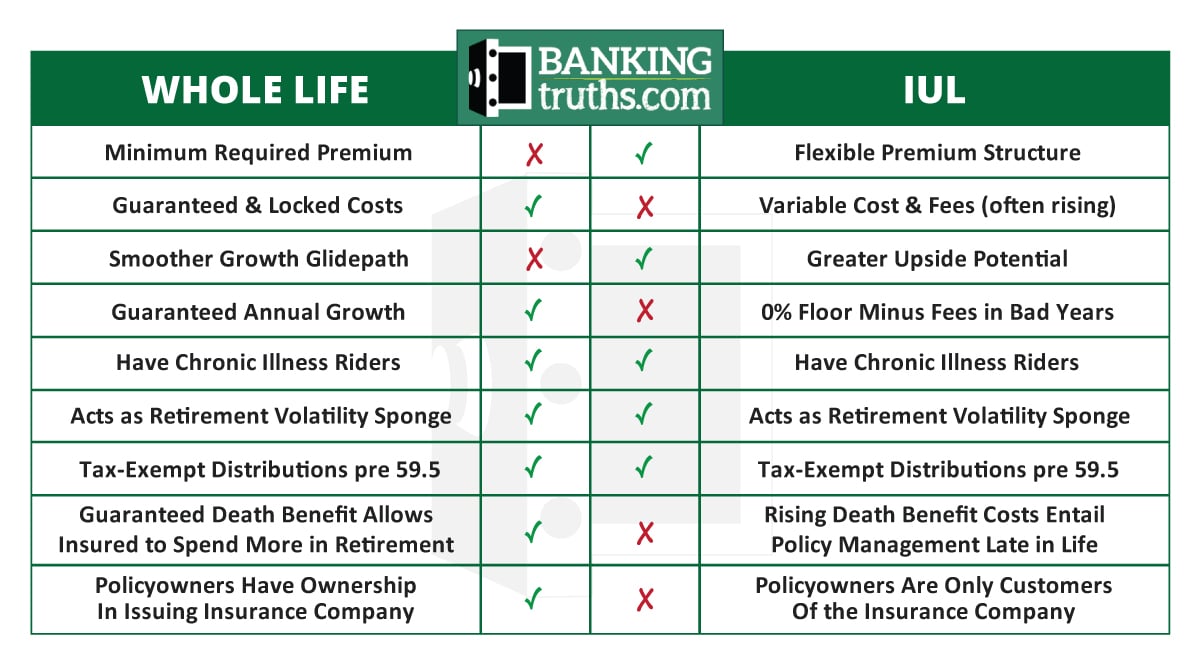All Categories
Featured
Table of Contents
Do they compare the IUL to something like the Vanguard Total Amount Stock Market Fund Admiral Shares with no load, an expenditure ratio (ER) of 5 basis points, a turn over ratio of 4.3%, and an extraordinary tax-efficient document of distributions? No, they contrast it to some dreadful actively handled fund with an 8% tons, a 2% ER, an 80% turn over ratio, and a horrible record of temporary resources gain circulations.
Common funds commonly make annual taxable circulations to fund owners, even when the value of their fund has actually decreased in worth. Common funds not just require revenue reporting (and the resulting yearly taxation) when the shared fund is increasing in worth, yet can likewise impose income tax obligations in a year when the fund has actually decreased in value.
You can tax-manage the fund, harvesting losses and gains in order to minimize taxable distributions to the capitalists, however that isn't in some way going to change the reported return of the fund. The ownership of shared funds might call for the shared fund owner to pay approximated tax obligations (group universal life insurance cash value).

IULs are easy to place to make sure that, at the proprietor's death, the beneficiary is not subject to either income or estate taxes. The same tax obligation reduction methods do not work nearly also with shared funds. There are numerous, often pricey, tax traps connected with the moment trading of shared fund shares, catches that do not put on indexed life insurance policy.
Chances aren't extremely high that you're going to go through the AMT because of your common fund distributions if you aren't without them. The remainder of this one is half-truths at ideal. For instance, while it holds true that there is no earnings tax because of your beneficiaries when they acquire the proceeds of your IUL policy, it is also real that there is no income tax because of your successors when they inherit a shared fund in a taxable account from you.
Cap Life Insurance
There are much better ways to prevent estate tax issues than buying financial investments with low returns. Mutual funds might trigger income taxes of Social Security benefits.

The growth within the IUL is tax-deferred and may be taken as free of tax income by means of financings. The plan owner (vs. the common fund manager) is in control of his/her reportable earnings, therefore enabling them to lower and even get rid of the taxation of their Social Safety benefits. This one is wonderful.
Right here's another very little problem. It holds true if you purchase a shared fund for state $10 per share right before the circulation day, and it disperses a $0.50 circulation, you are then mosting likely to owe taxes (most likely 7-10 cents per share) despite the fact that you have not yet had any kind of gains.
In the end, it's truly regarding the after-tax return, not just how much you pay in taxes. You're additionally most likely going to have more cash after paying those tax obligations. The record-keeping needs for owning shared funds are considerably more complicated.
With an IUL, one's records are kept by the insurance policy business, copies of annual declarations are sent by mail to the proprietor, and circulations (if any kind of) are amounted to and reported at year end. This one is likewise sort of silly. Naturally you need to keep your tax obligation documents in situation of an audit.
Best Iul Insurance Companies
Barely a factor to get life insurance policy. Shared funds are typically component of a decedent's probated estate.
Furthermore, they undergo the delays and expenditures of probate. The profits of the IUL policy, on the other hand, is constantly a non-probate distribution that passes outside of probate straight to one's named recipients, and is therefore exempt to one's posthumous lenders, undesirable public disclosure, or comparable delays and prices.
We covered this under # 7, but just to wrap up, if you have a taxed shared fund account, you should place it in a revocable trust fund (and even less complicated, utilize the Transfer on Fatality designation) in order to stay clear of probate. Medicaid incompetency and lifetime revenue. An IUL can offer their proprietors with a stream of revenue for their whole lifetime, despite how much time they live.

This is beneficial when organizing one's affairs, and converting assets to earnings before a nursing home arrest. Shared funds can not be transformed in a comparable fashion, and are generally taken into consideration countable Medicaid assets. This is an additional dumb one advocating that inadequate individuals (you recognize, the ones that need Medicaid, a government program for the bad, to pay for their assisted living facility) should make use of IUL rather of common funds.
Accumulation Value Life Insurance
And life insurance policy looks terrible when compared rather versus a pension. Second, individuals who have money to purchase IUL above and past their pension are mosting likely to need to be dreadful at handling cash in order to ever get Medicaid to pay for their assisted living home expenses.
Persistent and incurable health problem cyclist. All policies will certainly permit an owner's easy access to money from their plan, usually forgoing any type of abandonment fines when such individuals experience a severe ailment, need at-home treatment, or end up being constrained to a nursing home. Shared funds do not supply a comparable waiver when contingent deferred sales fees still put on a mutual fund account whose owner requires to offer some shares to fund the prices of such a keep.
Universal Life Insurance Premium Increases
You obtain to pay more for that advantage (motorcyclist) with an insurance plan. Indexed global life insurance coverage gives fatality benefits to the beneficiaries of the IUL owners, and neither the proprietor neither the recipient can ever before shed cash due to a down market.
I absolutely don't require one after I get to economic independence. Do I desire one? On average, a buyer of life insurance pays for the true cost of the life insurance coverage advantage, plus the prices of the plan, plus the profits of the insurance company.
Is Iul Insurance A Good Investment
I'm not totally certain why Mr. Morais included the entire "you can not lose cash" again here as it was covered fairly well in # 1. He just wanted to duplicate the most effective marketing point for these things I intend. Once again, you don't shed nominal dollars, however you can shed real bucks, along with face significant opportunity price as a result of low returns.

An indexed universal life insurance coverage policy proprietor may exchange their plan for a completely various policy without activating income taxes. A shared fund owner can stagnate funds from one mutual fund firm to another without selling his shares at the previous (therefore activating a taxed event), and buying brand-new shares at the last, frequently subject to sales charges at both.
While it holds true that you can trade one insurance coverage for an additional, the factor that individuals do this is that the first one is such a dreadful plan that also after buying a brand-new one and experiencing the very early, adverse return years, you'll still come out ahead. If they were sold the best policy the very first time, they should not have any need to ever before trade it and go through the very early, adverse return years once again.
Latest Posts
Indexed Universal Life Insurance Vs Whole Life Insurance
Variable Universal Life Vs Indexed Universal Life
Is Indexed Life Insurance A Good Investment